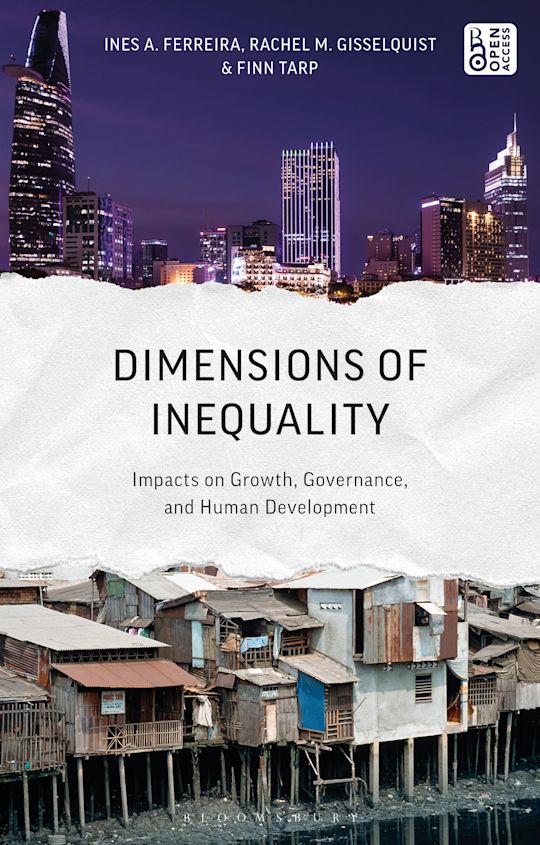Dimensions of Inequality
Impacts on Growth, Governance, and Human Development
- Open Access
Dimensions of Inequality
Impacts on Growth, Governance, and Human Development
- Open Access
Payment for this pre-order will be taken when the item becomes available
- Delivery and returns info
-
Free US delivery on orders $35 or over
Description
This open access book offers a balanced, readable introduction to key topics around inequality across the globe.
Inequality matters-and yet, despite an explosion of research and debate, it remains one of the most contested issues of our time. Is it rising or falling? Why do expert analyses often clash? And how can non-specialists make sense of the evidence? Too often, discussions focus narrowly on wealthy Western countries, overlooking also urgent realities in Africa, Asia, and Latin America.
This book tackles those gaps, combining expert synthesis of the scholarly literature with new findings from @EQUAL, a major research consortium project spanning institutions in the Global North and South. Through vivid examples-particularly from Colombia, Ethiopia, Mozambique, South Africa, and Vietnam-it examines how inequality is measured, understood, and acted upon across diverse contexts.
Rejecting one-size-fits-all solutions, it advocates nuanced, practical, and transformative approaches rooted in context, values, and evidence. Making complex research accessible, this open-access book equips readers with essential knowledge and tools to confront inequality worldwide.
The ebook editions of this book are available open access under a CC BY-NC-ND 4.0 licence on bloomsburycollections.com. Open access was funded by the Novo Nordisk Foundation.
Table of Contents
1. Rising Inequality?
2. Dimensions of Inequality
3. How Do People Understand, Perceive, and Act on Inequality?
4. Inequality, Economic Prosperity, and Well-being
5. Inequality, Political Institutions, and Stability
6. What to Do?: Interventions that Have Reduced Inequality or Mitigated Its Harms
Appendix
Bibliography
Index
Product details

| Published | Apr 30 2026 |
|---|---|
| Format | Paperback |
| Edition | 1st |
| Extent | 256 |
| ISBN | 9781350516908 |
| Imprint | Bloomsbury Academic |
| Dimensions | 9 x 5 inches |
| Publisher | Bloomsbury Publishing |
Reviews

OPEN ACCESS
Bloomsbury Open Access
Read and download this book free of charge from Bloomsbury Collections.




































